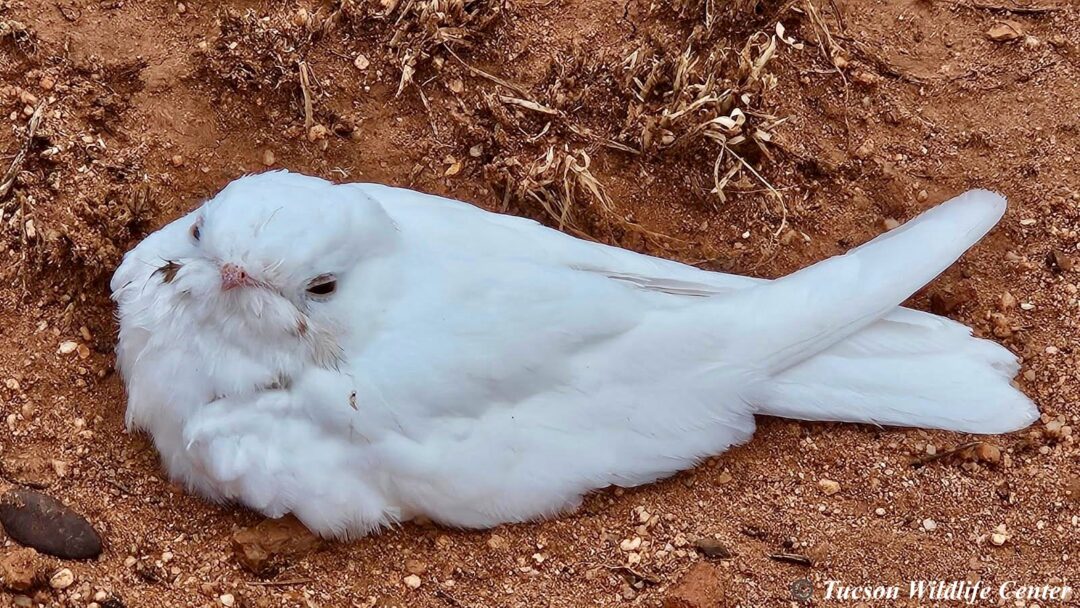
Leucistic Common Poorwill
This unusual bird was brought to Tucson Wildlife Center after being found on the ground. At first glance, its bright white feathers made it look very different from what most people expect to see in the desert. It turned out to be a Common Poorwill with leucism—a rare genetic condition that reduces or blocks pigment in feathers.
Unlike albinism, leucism does not affect the color of the eyes. Leucistic birds are uncommon in the wild, as their lack of camouflage makes them stand out, which can make survival more difficult.
Common Poorwills are in the nightjar family and are related to Lesser Nighthawks and Whip-poor-wills, which are also nightjars. They often roost and even nest directly on the ground, sometimes in very open areas. They do not build nests; instead, they lay their eggs directly on the soil, and chicks remain on the ground as well. This behavior may surprise people who expect to see baby birds hidden away in trees.
Fortunately, this leucistic Poorwill had no injuries and was released back into the wild. If you find a Poorwill—or their chicks—on the ground, the best thing you can do is leave them undisturbed unless they are clearly injured. For these birds, being on the ground is perfectly natural. If you would like to help patients like this Common Poorwill, click this link to donate,
Another way you can contribute is to visit our “wish list” on Amazon or Chewy below:
We appreciate it, as will all the wild animals in our care!

Show your support with a minimum $25 donation and we’ll send you a “KEEP TUCSON WILD” sticker. Click the bumper sticker to donate.

